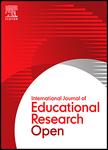版权所有:内蒙古大学图书馆 技术提供:维普资讯• 智图
内蒙古自治区呼和浩特市赛罕区大学西街235号 邮编: 010021

作者机构:Research Group on Data Artificial Intelligence and Innovations for Digital Transformation Johannesburg Business School University of Johannesburg Johannesburg South Africa College of Accounting Sciences University of South Africa Pretoria South Africa Department of Computer Science University of Exeter EX4 4PY Exeter United Kingdom & Johannesburg Business School University of Johannesburg Johannesburg South Africa
出 版 物:《International Journal of Educational Research Open》 (Int. J. Educational Res. Open)
年 卷 期:2025年第8卷
主 题:Accounting education Artificial intelligence-generated language translations Augmented reality Design science research IsiZulu Sustainable development goal 4
摘 要:One of the sustainable development goals identified by the United Nations (UN) aims to ensure inclusive, equitable, quality education and promote lifelong learning opportunities for all. The report issued by the UN in 2022 highlighted that the global education crisis for vulnerable groups has worsened due to the COVID-19 pandemic, war, lack of infrastructure, and little or no psychosocial support. The prevalence of English as the medium of instruction in higher education, is a challenge for students who speak English as a second language. In South Africa, and Africa as a whole, the majority of the population speak in their mother tongue as a first language, which is problematic for students enrolled at English medium universities. This study focuses on accounting education from a South African perspective. Earlier research found that the number of African chartered accountants in South Africa are inadequately represented and cited one of the reasons as being a language barrier. We propose that the translation of accounting concepts into indigenous African languages can improve the understanding of accounting principles which will allow for inclusive, equitable, and quality education for all. In doing so, we develop a prototype application, which encompasses augmented reality and artificial intelligence-generated language translation functionalities to teach accounting principles in an indigenous African language, namely, IsiZulu. The application, named Zulu Augmented Reality Translation (ZART), aids the learning process of accounting principles, by providing an engaging and interactive learning experience in IsiZulu. The paper commences with a literature review on the teaching pedagogy and challenges in accounting education. Thereafter, the design science research applied in the development of ZART is discussed. Using questionnaires, an experiment is conducted to evaluate the usability of ZART, students’ perceptions and pedagogical experiences of using ZART. The res